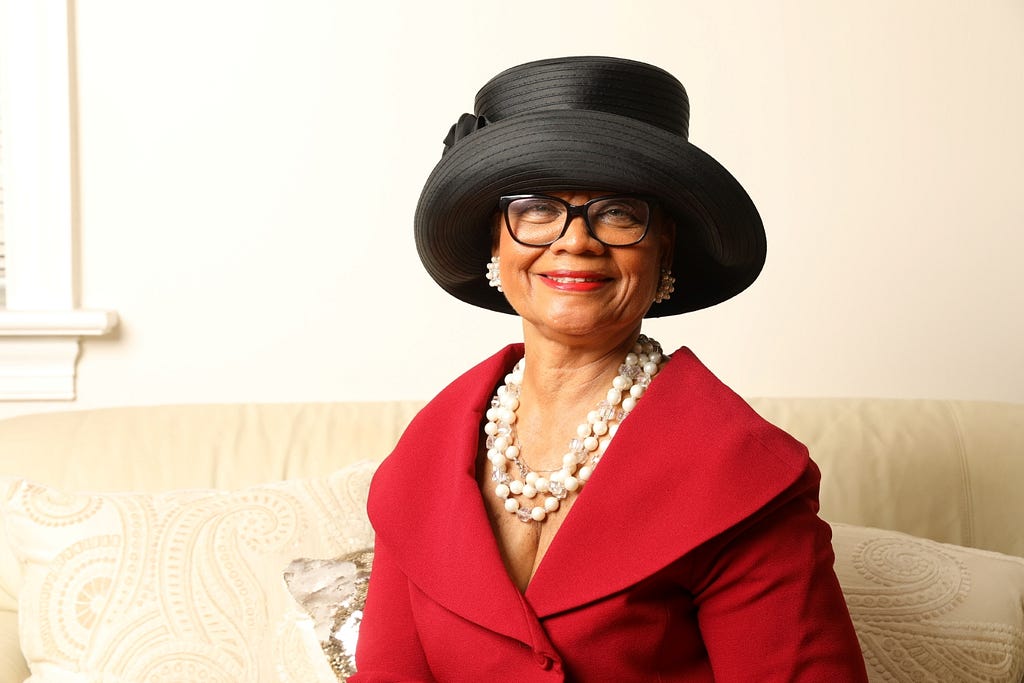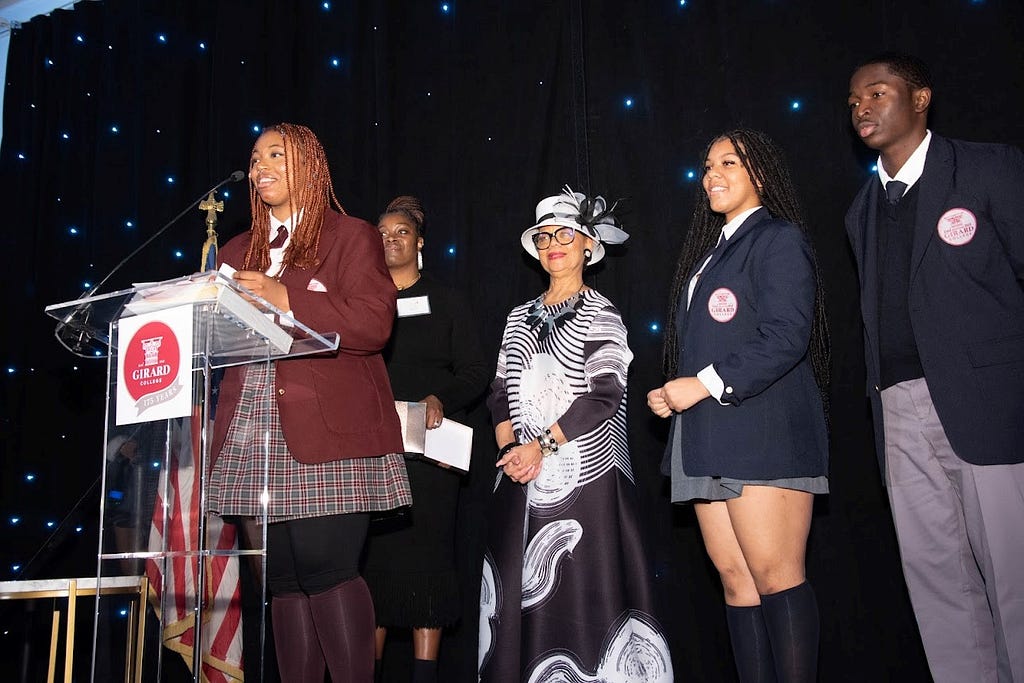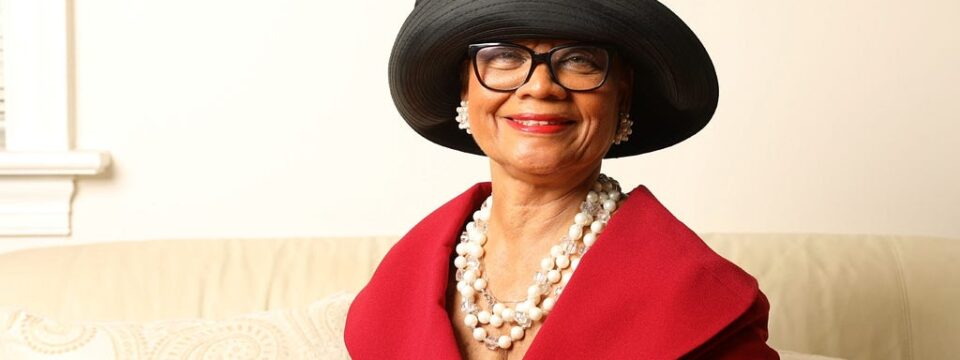Rev Dr Lorina Marshall-Blake of Independence Blue Cross Foundation: 5 Things You Need To Know To Successfully Lead A Nonprofit Organization

Keep the communities you serve in mind. Assemble a team that reflects your mission and stay true to that. Listen to diverse perspectives and improve your cultural competency. Showing an informed and genuine interest in your communities’ needs and desires will take you far as a nonprofit leader.
As part of my series about “individuals and organizations making an important social impact”, I had the pleasure of interviewing Rev. Dr. Lorina Marshall-Blake.
Rev. Dr. Lorina Marshall-Blake is the president of the Independence Blue Cross (IBX) Foundation, a private charitable foundation, and the vice president of Community Affairs at Independence Blue Cross. Marshall-Blake is also involved with numerous professional and civic organizations and serves on more than 20 non-profit boards and committees.
Thank you so much for doing this with us. Before we begin our readers would like to get to know you a bit more. Can you tell us a bit about your “backstory”?
I grew up in West Philly, where I graduated from Overbrook High School. I wanted to go to college, but it was unaffordable at the time for my family. However, I never gave up on that dream, and eventually I became the first of my siblings to earn a bachelor’s degree. I’m proud to say that I now have a master’s degree as well as several honorary degrees, and I serve on numerous national committees.
I started my career as the assistant to the vice president and CEO of Philadelphia Gas Works, where I worked for more than 14 years. In 1991, I came to Independence Blue Cross as the vice president of Government Relations, representing the company at the local, state and federal levels. I’ve proudly served as the president of the IBX Foundation since its founding in 2011, where I get to give back to the community that has given me so much.
Can you tell us the story behind why you decided to start or join your nonprofit?
As a lifelong member of the Philadelphia community, I believe each of us is meant to serve in some way. I accepted the role as president of the Foundation because I believed strongly in our mission to lead solutions for healthier communities, and I felt sure we could make a major difference in our region. By the end of 2024, the IBX Foundation will have awarded more than $85 million to nonprofits and research projects that expand access to affordable primary and behavioral healthcare, enhance educational opportunities in the healthcare workforce and enable solutions for greater health equity. Nothing could be more professionally and personally rewarding.
Can you describe how you or your organization aims to make a significant social impact?
Our Foundation is dedicated to improving the health and wellbeing of the communities we serve. We do that through collaboration and relationships. We seek opportunities that address healthcare challenges in southeastern Pennsylvania with a laser focus on access and equity. For example, through our Blue Safety Net program, we work to help people in underserved areas get access to high quality healthcare through community health centers that provide everything from primary care to mental and behavioral health services.
We’re also working to help grow the future healthcare workforce. We provide funding to local nursing schools for scholarships and professional development opportunities that help advance nursing education. Given the ongoing nursing shortage, these programs offer an opportunity to ensure the workforce continues to meet our community’s future needs.
Additionally, through the IBX Foundation Institute for Health Equity we’ve made a $15 million commitment to enable solutions for greater health equity in medical education, maternal health and digital health.
Without saying any names, can you share a story about an individual who was helped by your idea so far?
Recently, I spent some time with a student who is participating in one of our newer initiatives called the IBX Foundation Service Scholars Program. This first-of-its kind program provides an educational pathway for post-9/11 military veterans to pursue a Bachelor of Science or associate degree in nursing. The student and program were recently featured in an episode of “Military Makeover: Operation Career,” hosted by Montel Williams.
Being able to support this student in pursuing her goal to become a nurse is extremely gratifying, but she’s just one student. There are hundreds of others like her with similar stories. In fact, through the Foundation’s Nurses for Tomorrow program, we have awarded more than $16 million to provide more than 6,000 scholarships to undergraduate, graduate and doctoral nursing students. In the Philadelphia region, one in 10 nursing students receives some type of financial assistance from the IBX Foundation.
What are some things the community/society/politicians can do to help address the root of the problems you are trying to solve?
Fortunately, we work with many similar-minded individuals and organizations who are already doing incredible work to advance health equity and create better access to healthcare. This includes all the admirable nursing institutions and Federally Qualified Health Centers (FQHCs), free clinics, and nonprofit clinics in our region that we’ve been working with for more than a decade.
In April 2023, the Independence Blue Cross Foundation Institute for Health Equity convened hundreds of regional and national leaders representing academic medicine, national professional medical organizations, regional health systems, nonprofit organizations, government, and philanthropy for a three-day Health Equity Forum to drive action in medical education, digital health and maternal health. There isn’t a shortage of people who are committed to solving these problems, and through collaboration and unity, we’re making great strides.
How do you define “Leadership”? Can you explain what you mean or give an example?
To me, leadership is about trusting and empowering the individuals that make up your support system. I love this quote by Nelson Mandela: “A leader is like a shepherd. He stays behind the flock, letting the most nimble go out ahead, whereupon the others follow, not realizing that all along they are being directed from behind.” I’m blessed to have an empowering network of colleagues and supporters that make the work easier.
Leadership is also about personally connecting with people and by being your authentic self. Another one of my favorite quotes is by Maya Angelou, who said, “I’ve learned that people will forget what you said, people will forget what you did, but people will never forget how you made them feel.” I pride myself on being consistently consistent, which I believe has made me a successful leader. People who know me know what to expect from me and that I’m reliable, responsible and real.
Last, one of the things I love most about being in a leadership role is being able to mentor many amazing young people. That’s pure joy.

Based on your experience, what are the “5 Things A Person Should Know Before They Decide To Start A Non Profit”.
- Be inclusive. This is especially important in the healthcare and nonprofit industries. For example, studies show that health outcomes improve when the healthcare workforce is representative of the community it serves. Our Foundation is working to advance that idea through our Institute for Health Equity and our support of the Alliance for Minority Physicians, the Consortium of DEI Health Educators and the Aspiring Physician Executives.
- Break down barriers to create pathways for others. Breaking barriers is not about personal achievement, but about opening doors for others. The legacy I aspire to leave is one of empowerment and resilience. I want future generations to look back and see that, regardless of challenges, they can achieve positive change.
- Believe wholeheartedly in your mission and purpose. Leading a nonprofit is not easy work. I believe it’s important to have a true passion for whatever you do. Let it drive you to put your best foot forward and make others want to join in your efforts.
- Celebrate every victory. Be sure to track your progress and measure your impact to ensure the success of your mission. Most importantly, there is never an achievement too small to celebrate. Share the small wins along with the big ones.
- Keep the communities you serve in mind. Assemble a team that reflects your mission and stay true to that. Listen to diverse perspectives and improve your cultural competency. Showing an informed and genuine interest in your communities’ needs and desires will take you far as a nonprofit leader.
Can you share your favorite “Life Lesson” Quote? How is that relevant to you in your life?
I love this quote from Martin Luther King, Jr.: “Everybody can be great because everybody can serve.” I live my life and do my best work by this mantra. Service empowers individuals to make a positive impact in their community, no matter where they live or how they were raised.
I consider myself a servant leader and the best way to do that is by helping others in underserved communities. Whether it’s with the IBX Foundation, in my community where I live, or in the church where I worship, I try to do that every day. When I first became president of the Foundation, I visited all the community health centers we support. I wanted to demonstrate that our Foundation is a trusted messenger with trusted messages.
How can our readers follow you online?
They can follow me personally through my LinkedIn profile. People interested in knowing more about the IBX Foundation can visit our website or our LinkedIn. Our docuseries, Making Change Happen: Solving for Health Equity, features inspiring, human-centered stories that explore the impact of the IBX Foundation’s collaborations. The most recent episode on how community health centers promote equitable access to care can be viewed here.
This was very meaningful, thank you. We wish you only continued success in your mission.
Rev Dr Lorina Marshall-Blake of Independence Blue Cross Foundation: 5 Things You Need To Know To… was originally published in Authority Magazine on Medium, where people are continuing the conversation by highlighting and responding to this story.
